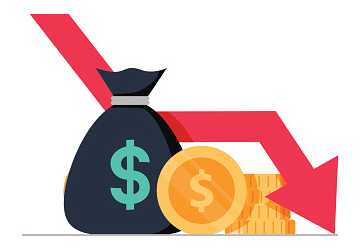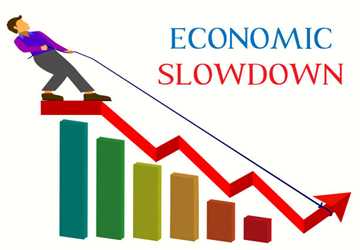Have you noticed the recent rise in prices? American consumers are feeling the effects of inflation.
In January 2022, the consumer price index rose at an annual rate of 7%, the largest 12-month gain since June 1982, according to federal data. CPI tracks how quickly prices for certain products are rising.
The purchasing power of a dollar decreases due to inflation. This leads to an increase in the cost of goods and services. When inflation rises, customers pay less for goods, input costs rise, and sales and profits fall. The effect is a slowdown in the economy until stability is restored.
High interest rates and rising prices do not provide an attractive portfolio for most investors. However, stocks are an effective inflation hedge because companies' earnings and sales should generally grow in line with inflation.
You may be paying too much for the stock
While some companies may raise prices due to inflation, others around the world may find it difficult to remain competitive with foreign manufacturers who do not raise prices due to inflation.
What's more, inflation deprives consumers and investors by driving up costs without adding value. You pay more for less. Inflation inflates a company's finances because its sales and profits, as well as any added value it creates, grow in tandem with inflation.
When inflation falls, income falls.

When inflation falls, inflationary income and income fall. Tides raise and lower all boats, but it's hard to determine the true value.
Short-term interest rates are the Fed's main weapon against inflation. The Fed could take some of the extra money out of the market by raising borrowing costs.
Slow down the cycle of price appreciation by withdrawing funds from the market.
How Inflation Affects Your Portfolio
Inflation and Your Wealth: Should You Be Worried? If you invest the majority of your wealth in fixed income instruments, the answer is definitely yes.
Inflation reduces their purchasing power, which hurts pensioners with limited incomes because their savings can only buy a small amount of goods and services over time. For this reason, financial advisors even encourage retirees to keep some of their wealth in the market as a hedge against inflation.
The more cash and currency equivalents you have on hand, the more inflation will punish you. After a year of 5% inflation, $100 under your mattress can only buy you $95 worth of product. Look for securities that provide a buffer against rising interest rates, such as B. U.S. Treasuries I Inflation-Linked Bonds.
Investors should watch out for interest-rate-sensitive stocks.
What happens if the market falls during the inflation phase?

When inflation soars, you can expect stocks to suffer, but inflation usually predicts economic growth and rising stock prices. Stagflation is the term for a prolonged economic recession accompanied by rising inflation. Stagnation presents unique challenges for central bankers because many of the tools they use to fight inflation depend on slowing economic growth. The dangers of these deflationary tools increase when the economy is weak.




